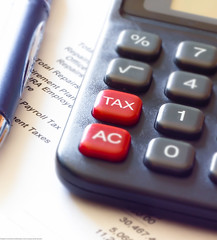Filing for bankruptcy can be a complex and daunting process. If you are considering either Chapter 7 or Chapter 13 bankruptcy in New Jersey, it is essential to understand how federal bankruptcy exemptions work. These exemptions play a crucial role in determining which assets you can keep and how your debts will be handled. This blog post will guide you through the step-by-step process of using federal bankruptcy exemptions when filing for either Chapter 7 or Chapter 13 bankruptcy in New Jersey.
What Are Federal Bankruptcy Exemptions?
Federal bankruptcy exemptions are specific laws that protect certain assets from being seized by creditors during bankruptcy proceedings. These exemptions are designed to help individuals retain essential property, allowing them to maintain a basic standard of living while they work through their financial difficulties.
Choosing Between Federal and State Exemptions
In New Jersey, you have the option to choose between federal bankruptcy exemptions and state-specific exemptions. It’s important to note that you cannot mix and match; you must select one set of exemptions entirely. Here’s a brief overview of how to decide:
- Federal Exemptions: Generally more favorable for protecting certain types of personal property, retirement accounts, and wildcard exemptions that can be applied to any property.
- State Exemptions: May offer protection for specific personal property or other assets; generally, the Federal bankruptcy exemptions are more generous than the New Jersey state exemptions. Most people choose the Federal exemptions.
Since the focus here is on federal exemptions, let’s dive into the specifics of how they apply to Chapter 7 and Chapter 13 bankruptcies in New Jersey.
Filing for Chapter 7 Bankruptcy in New Jersey
Step 1: Determine Eligibility
Chapter 7 bankruptcy, also known as “liquidation bankruptcy,” requires you to pass a means test. This test compares your income to the median income for a household of your size in New Jersey. If your income is below the median, you are eligible to file for Chapter 7.
Step 2: List All Assets and Debts
You must provide a comprehensive list of all your assets and debts. This includes real estate, personal property, bank accounts, and any other financial interests.
Step 3: Apply Federal Exemptions
Federal bankruptcy exemptions are crucial in Chapter 7 filings because they determine which assets you can keep. Key federal exemptions include:
- Homestead Exemption: Up to $27,900 of equity in your primary residence.
- Motor Vehicle Exemption: Up to $4,450 of equity in one vehicle.
- Household Goods and Furnishings: Up to $700 per item, not exceeding $14,875 in total.
- Jewelry: Up to $1,875.
- Wildcard Exemption: Up to $1,475 plus up to $13,950 of any unused portion of the homestead exemption, applicable to any property.
- Retirement Accounts: Exempt up to $1,512,350 in IRAs and Roth IRAs. Other tax-exempt retirement accounts are fully exempt.
The dollar amounts listed above change regularly. Please consult a bankruptcy attorney to discuss whether the items you own may be exempt.
Step 4: Liquidation of Non-Exempt Assets
Any assets that are not covered by federal exemptions may be sold by the bankruptcy trustee to pay off your creditors. However, the exemptions typically allow most filers to retain essential property.
Step 5: Discharge of Debts
Once the non-exempt assets are liquidated, the remaining qualifying debts will be discharged, giving you a fresh financial start.
Filing for Chapter 13 Bankruptcy in New Jersey
Step 1: Determine Eligibility
Chapter 13 bankruptcy, or “reorganization bankruptcy,” is designed for individuals with a regular income who can repay some or all of their debts over a three to five-year period. There are no technical income requirements like in Chapter 7, but your secured and unsecured debts must be below certain limits. In most circumstances, you must be able to afford a regular monthly payment throughout a three to five-year Chapter 13 case.
Step 2: Develop a Repayment Plan
You will propose a repayment plan detailing how you intend to pay off your debts over the plan period. This plan must be approved by the bankruptcy court.
Step 3: Apply Federal Exemptions
Federal exemptions in Chapter 13 bankruptcy serve to protect your assets from being liquidated to pay creditors. As in Chapter 7, the exemptions determine what property you can keep while making payments under your repayment plan. The same federal exemptions apply:
- Homestead Exemption: Protects equity in your home.
- Motor Vehicle Exemption: Protects equity in your vehicle.
- Household Goods and Furnishings: Protects essential household items.
- Wildcard Exemption: Offers additional protection for other property.
- Retirement Accounts: Ensures your retirement savings remain intact.
Step 4: Court Approval of Repayment Plan
The bankruptcy court will review your Chapter 13 repayment plan, ensuring it is feasible and meets the requirements of the bankruptcy code. Once approved, you will begin making payments to a bankruptcy trustee, who will distribute the funds to your creditors.
Step 5: Completion of Repayment Plan and Discharge
After successfully completing your Chapter 13 repayment plan, any remaining qualifying debts will be discharged. This discharge releases you from personal liability for the discharged debts, marking the end of your bankruptcy case.
Conclusion
Navigating federal bankruptcy exemptions is a critical part of the bankruptcy process, whether you are filing for Chapter 7 or Chapter 13 in New Jersey. By understanding how these exemptions work, you can better protect your assets and make informed decisions about your financial future. If you are considering bankruptcy, consulting with a knowledgeable bankruptcy attorney can provide valuable guidance tailored to your specific situation.

 It sometimes comes up that a person who wants to file for
It sometimes comes up that a person who wants to file for 